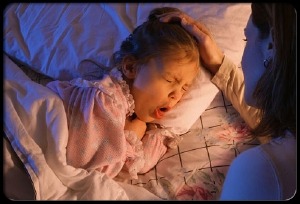
Since the beginning of March, Mono County Health has received reports of 9 confirmed cases of pertussis.
Whooping Cough Has Returned to Mammoth – from Inyo-Mono Public Health Officer Dr. Rick Johnson
During the last 5 weeks, the Mono County Health Department has received reports of 9 laboratory confirmed cases of whooping cough (pertussis). All are residents of Mammoth Lakes, and most are infants and children under 2 years of age. All except one have been fully vaccinated appropriately for their age. None have been hospitalized. At this point in time, 4 day care sites, and one school is involved, and all staff and parents have been or are being notified.
This represents a recent surge of cases, and is probably just the tip of the iceberg. In 2011, there were only 2 cases in Mono County, and in the peak year of 2010, there were 18 cases. Since many more infants are currenty being tested, we fully expect that we will pass the total for all of 2010 in the next few weeks.In the rest of California, the numbers of new cases has recently been decreasing, with no cases recently reported from Inyo County.
The Health Department has aggressively been working with day care and healthcare providers to prevent any secondary cases. This includes contact tracing, vaccination, and antibiotic treatment and prophylaxis, and focuses on those most vulnerable (young infants) by building a “cocoon” of safe space around them. Thus far, our investigation is still preliminary, and many factors are being explored. We have not identified any “smoking gun”, e.g., place or person of origin.
Pertussis is thought of as a children’s disease – and, yes – that is who dies – but they catch it from older children and adults, especially parents and other caregivers. It is easily spread from person to person through droplets in the air when people cough. Classic whooping cough starts with a cough and runny nose for one to two weeks, much like the common cold. It’s followed by weeks to months of rapid coughing fits that end with a “whooping” sound, often accompanied by vomiting, and usually without a fever.
In some languages, it is known as the “100 day cough”. However, many children and adults have milder forms of the illness, and don’t seek medical care. Even if they do, healthcare providers often don’t think of whooping cough, and so many cases in the community go undiagnosed.
Persons with whooping cough remain contagious until they have completed 5 days of antibiotic treatment. Prophylaxis, or preventive antibiotics, is potentially helpful in preventing new cases if given within 2-3 weeks of exposure, since the incubation period is long, and can be up to 3 weeks.
What should you do?
Public:
Vaccination:
All pregnant females should be vaccinated in the second or third trimester, or at the latest, before leaving the hospital after giving birth.
If you are the parent of an infant, get them vaccinated on time. Vaccination starts at 2 months of age, but full protection doesn’t occur until six months of age.
All close contacts to infants and pregnant females, and all child care providers, school personnel, and healthcare workers, should be vaccinated against pertussis (known as “Tdap” for those older than 7 years) to provide a “cocoon” of protection. This includes older siblings and extended family members, including grandparents over the age of 65. The vaccine does not give lifelong immunity, and children who have been fully vaccinated before kindergarten begin to lose their immunity before high school. Contact your provider or the health department (760-924-1830) to get vaccinated.
Prevention:
Parents with newborns should avoid large crowds due to the epidemic
If you have been in close contact with someone who has been diagnosed with whooping cough, seek medical care, and advise the provider of your exposure. Close contact is defined as direct contact with secretions (cough or sneeze in the face), sharing food or eating utensils, kissing, or being in a confined space (the same room) for more than one hour with a confirmed case.
Treatment:
If your infant shows signs of a cold in the first 6 months of life, check in with your healthcare provider.
If someone of any age has an illness that starts out with a runny nose and progresses to a cough that lasts longer than 1-2 weeks, seek advice from your healthcare provider.
If you have a cough, wear the mask provided to you at the healthcare facility.
Child care providers and school personnel:
Vaccination:
Verify that all staff has been vaccinated with the Tdap vaccine.
Verify that all infants and children are up-to-date for age.
Prevention:
Strictly enforce exclusion policies regarding cough (“No coughing allowed!”)
Eliminate contact between groups that are optional (e.g., different ages)
Please call your provider or the Health Department with any questions.
















